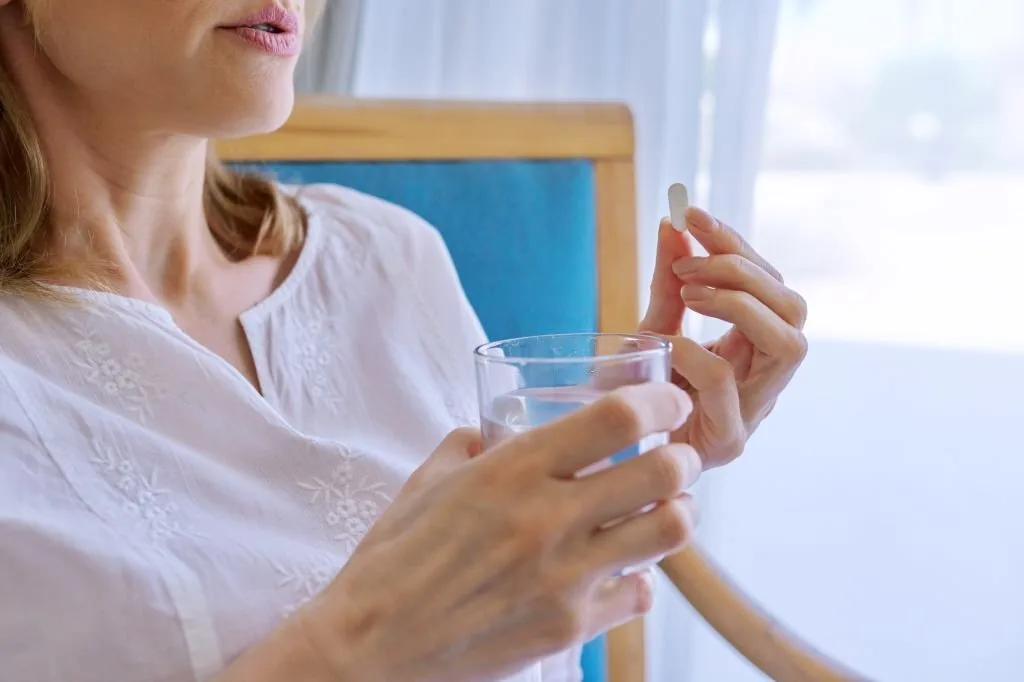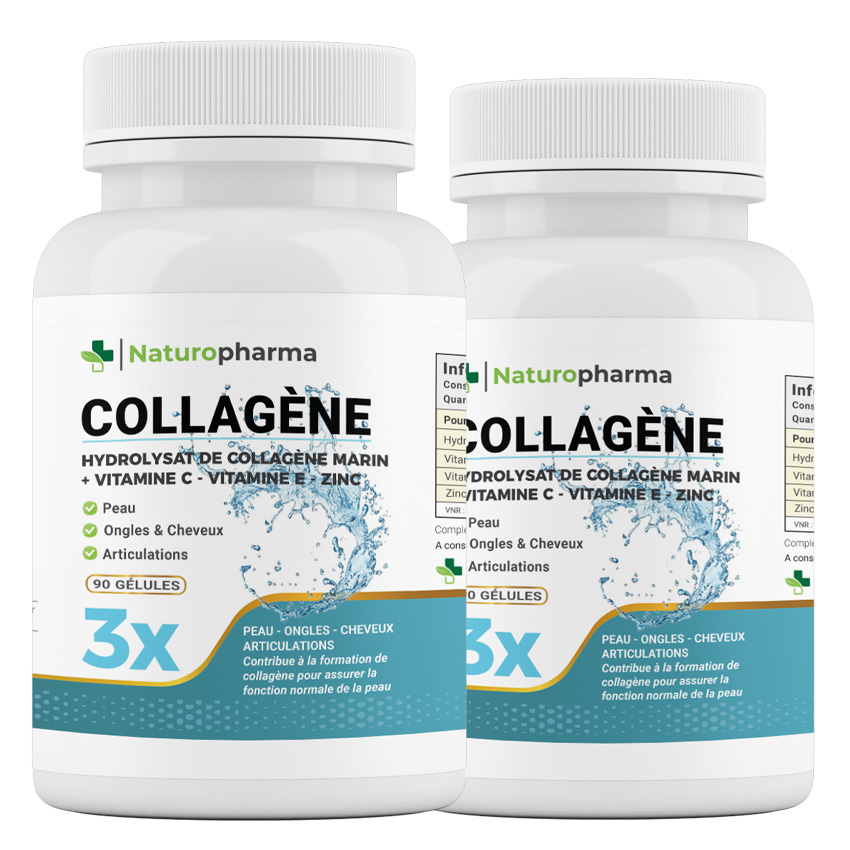Le collagen marin is a type of protein that can benefit health in a number of ways, including for women during the menopause.
The menopause is a time when oestrogen levels begin to fall, which can lead to changes in the body, such as the loss of collagen. Collagen can help to make up for this deficiency and improve the health of the skin, bones and joints.
Benefits for the skin A study published in the journal "Menopause" in 2015 examined the effect of marine collagen on skin health in post-menopausal women.
Researchers found that marine collagen improved skin firmness, roughness and hydration, contributing to a more youthful, luminous appearance of the skin.
Benefits for bones and joints The menopause is also associated with bone loss, which can increase the risk of fractures and diseases such as osteoporosis. Collagen can help strengthen bones and improve joint health, which can be particularly important for post-menopausal women.
Relief of menopausal symptoms In addition to its benefits for the skin, bones and joints, some studies have also suggested that marine collagen can help relieve menopausal symptoms such as hot flushes and vaginal dryness. However, more research is needed to better understand these effects.
It is important to note that the effects of marine collagen may vary from one person to another and that results may vary depending on the dose and duration of use. It is also important to consult a doctor before taking food supplements to discuss potential risks and interactions with other medicines or medical conditions.
In conclusion, marine collagen may be beneficial for women during the menopause by improving the SKIN HEALTHIt can also help to improve the health of the body, bones and joints, and relieve certain symptoms of the menopause. However, it is important to do thorough research and consult a doctor before taking food supplements for the best results.
Source :
- Wu, D., Meade, J., Feng, L., & Schmelz, E. M. (2015). Marine-derived n-3 polyunsaturated fatty acids and human health. Progress in lipid research, 57, 1-17.
- Lee, H. J., Kim, J. W., Seo, J. Y., Kim, M. J., & Lee, H. J. (2015). The effect of collagen tripeptide supplementation on skin hydration and biofilm formation. Menopause, 22(6), 675-680.
- 25 %
Marine Collagen x 3
Rated 4.89 out of 572,00 €Original price was: 72,00 €.53,73 €Current price is: €53.73. (-25%) - 21 %
Marine Collagen x 2
Rated 4.87 out of 548,00 €Original price was: 48,00 €.37,82 €Current price is: €37.82. (-21%) - 17 %
Marine Collagen
Rated 4.91 out of 524,00 €Original price was: 24,00 €.19,90 €Current price is: 19,90 €. (-17%)













